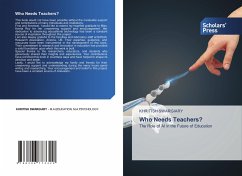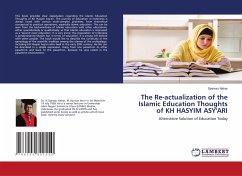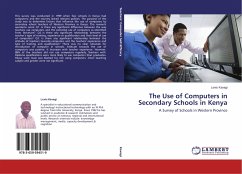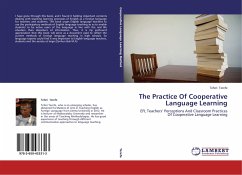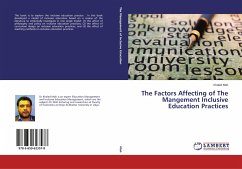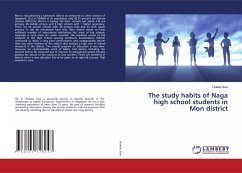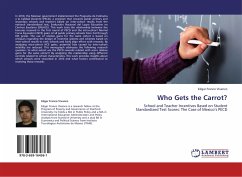
Who Gets the Carrot?
School and Teacher Incentives Based on Student Standardized Test Scores: The Case of Mexico's PECD
Versandkostenfrei!
Versandfertig in 6-10 Tagen
32,99 €
inkl. MwSt.

PAYBACK Punkte
16 °P sammeln!
In 2010, the Mexican government implemented the Programa de Estímulos a la Calidad Docente (PECD), a program that rewards public primary and secondary schools and teachers based on inter-cohort results from the national standardized test, Evaluación Nacional del Logro Educativo en Centros Escolares (ENLACE). This work tests the relationship between the bonuses received in the first round of PECD and the intra-cohort Normal Curve Equivalent (NCE) gains of all public primary schools from 3rd through 6th grade. The use of relative gains for the same cohort is based on critiques regarding the de...
In 2010, the Mexican government implemented the Programa de Estímulos a la Calidad Docente (PECD), a program that rewards public primary and secondary schools and teachers based on inter-cohort results from the national standardized test, Evaluación Nacional del Logro Educativo en Centros Escolares (ENLACE). This work tests the relationship between the bonuses received in the first round of PECD and the intra-cohort Normal Curve Equivalent (NCE) gains of all public primary schools from 3rd through 6th grade. The use of relative gains for the same cohort is based on critiques regarding the design of incentive systems and schemes based on inter-cohort results to rank schools and fairly align effort with rewards. By analyzing intra-cohort NCE gains, potential bias caused by inter-cohort volatility are reduced. This monograph addresses the following research question: to what extent are the PECD rewards related with score relative gains for the same cohort? By analyzing this relationship using different controls related to school characteristics, this work provides insights about which schools were rewarded in 2010 and what factors contributed to receiving those rewards



